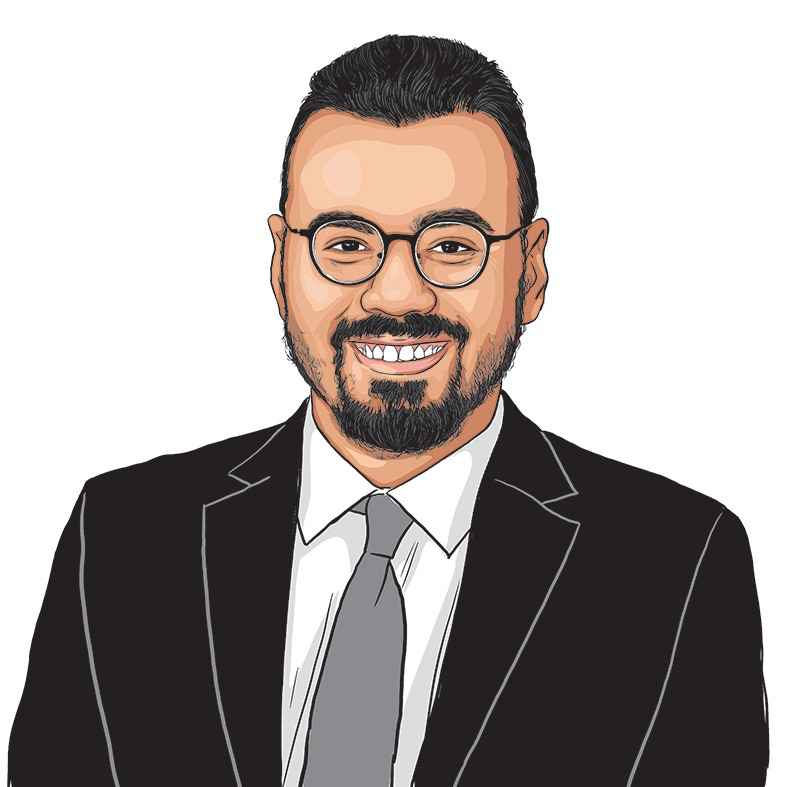Opinion From Munich to Raisina: The West’s fall, the East’s rise
The Raisina Dialogue fosters a distinct discourse, attracting a wider range of participants and voices, including Russian policymakers and thinkers from countries not typically present at Munich nowadays — chief among them Iran
 The Raisina Dialogue fosters a distinct discourse, attracting a wider range of participants and voices. (File)
The Raisina Dialogue fosters a distinct discourse, attracting a wider range of participants and voices. (File) Held within days of each other, the Munich Security Conference (MSC) and the Raisina Dialogue in Delhi recently concluded their annual sessions. Both conferences highlighted an undeniable reality: The global community is fragmenting into distinct blocs with their own realities, priorities, and increasingly fewer commonalities compared to, say, a decade ago. The MSC has long been a cornerstone of European security discourse; its agenda often reflects European anxieties and priorities. The Raisina Dialogue represents different perspectives on issues like the Russia-Ukraine war, less present in Munich.
The Raisina Dialogue fosters a distinct discourse, attracting a wider range of participants and voices, including Russian policymakers and thinkers from countries not typically present at Munich nowadays — chief among them Iran. The Raisina Dialogue and the Munich Security Conference diverge sharply on the invasion of Ukraine and the current state of the international order. They raise important questions regarding the widening intellectual divide between the West and the East and the ability of capitals such as Delhi, Riyadh, Doha, and Abu Dhabi to introduce a policy agenda that competes with the likes of the Munich Conferences and World Economic Forums of the world.
On the agenda at Munich
Dominated by the ongoing Russian invasion of Ukraine, Munich reflected Ukraine’s centrality to the worldviews of European and American policymakers and their engagement with the rest of the world — despite the growing divisions on supporting Ukraine. Simply put, Ukraine served as a de-facto benchmark for evaluating bilateral relations between the West and the Rest, at least until the recent war in Gaza. While the moral imperative is certainly important, from a realpolitik standpoint, prioritising and upholding Ukraine’s sovereignty may also be the most logical and realistic path for Europe in this era marked by interstate wars. This stems from Western concerns about Russia’s potential imperial ambitions in Eastern Europe, where it may seek to establish a spatial buffer zone against what it perceives as NATO encroachment. However, what Europe considers logical, realistic, and moral may not be universally accepted — and in Raisina, it was clear that this is indeed largely the case.
Meanwhile, the Rest at the Raisina Dialogue
The rise of the Raisina Dialogue coincides with India’s growing influence and its evolving strategic approach, shifting from non-alignment to multi-alignment. Raisina, buoyed by India’s successful G20 presidency last year, is expanding its reach and engaging a broader range of policymakers and thinkers, including individuals who previously haven’t participated and representatives from countries who don’t find room at Munich, generally. Interestingly, both conferences currently have limited participation from China, which reflects a point of growing alignment between Delhi and Western capitals. This year’s theme, “Chaturanga: Conflict, Contest, Cooperate, Create,” reflects the growing recognition — and the aspiration of the Rest — of a multipolar world where the West no longer holds sole sway. Standing at a direct crossroads from Munich, India’s External Affairs Minister S Jaishankar urged for increased engagement with Moscow. “Russia is increasingly turning towards Asia or other regions outside the West. It is prudent to offer Russia multiple options. If we constrain Russia to a single option, we risk creating a self-fulfilling prophecy. Other countries, particularly in Asia, must engage with Russia,” Jaishankar emphasised. He added: “It is certainly in Indian national interest but it is also in global interest. A lot of doors have been shut to Russia and the West.”
The Raisina Dialogue saw discussions raise questions about the application and perceived inconsistencies within the rules-based order, as well as the apparent mismatch between the current global order and the actual balance of power and growing influence of various nations such as Brazil, India, and Indonesia.
The widening intellectual gap between the West and the Rest presents a significant challenge to fostering global cooperation on security and development issues, as global policy discussions lack global buy-in. This is not a simplistic binary of Munich versus Raisina but rather a story of a fragmenting global community.
The previously dominant Davos consensus has fractured into multiple communities, each with diverging worldviews on priorities and narratives. Platforms like the Raisina Dialogue, alongside formats such as the Doha Forum, World Government Summit, and TRT World Forum, provide a space for different policy agendas, empower different voices on the global stage, and reflect the evolving global landscape, particularly the rise of Eastern powers — unimaginable decades ago.
The writer is a director at the Middle East Institute, a member of McLarty Associates, and a visiting fellow at Third Way




